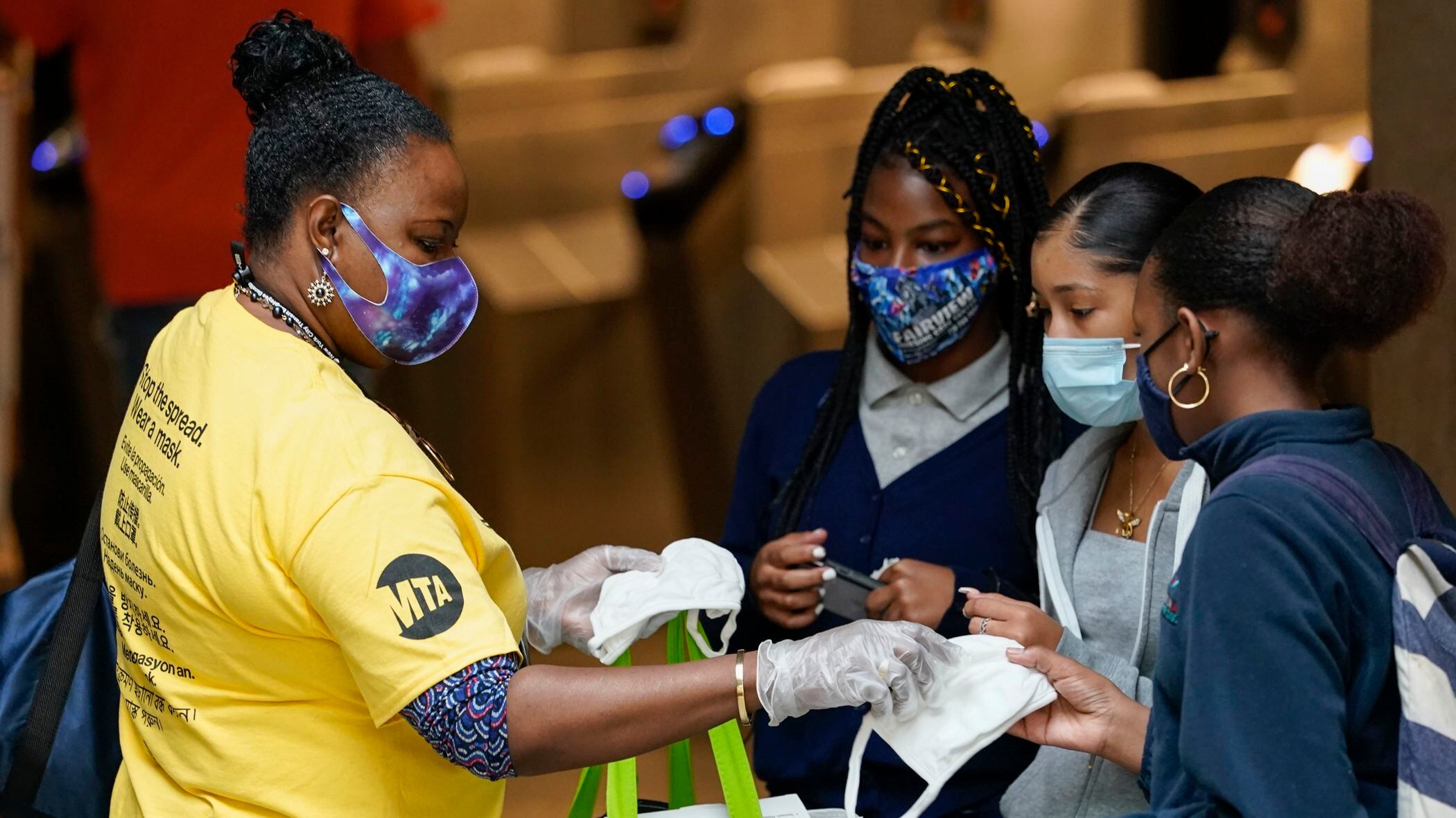Nearly a quarter of New York City bus and subway workers reported contracting COVID-19 since the start of the pandemic, according to a pilot study from New York University.
The NYU School of Global Public Health, which was also behind a study looking at the long-term health effects on 9/11 first-responders, teamed up with Transport Workers Union (TWU) Local 100 over the summer to better understand why transit workers were among the hardest hit professions in the city.
"Through gaining a deeper understanding of how COVID-19 has impacted transit workers' health and quality of life, we can determine how to best support them and protect them moving forward," said Robyn Gershon, leader of the research project and a clinical professor of epidemiology at NYU School of Global Public Health, in a statement.
The high infection rate among transit workers came despite a sharp decline in ridership. Subway ridership is still down 70 percent as of October compared to last year. Ninety members of TWU and a total of 130 MTA workers have reportedly died of the virus since March.
Back in May, New York State reported that 14.2 percent of transit workers had coronavirus antibodies, lower than the rate for the general population at the time. The NYU study in August relied on self-responses, rather than antibody tests, but found that 24 percent of transit workers reported testing positive, suggesting they continued to contract the virus well into the spring and summer.
In addition, 90 percent of respondents said they were still afraid of getting sick at work, and 76 percent report personally knowing a co-worker who died from coronavirus. One specific concern pointed out in the survey was dealing with angry or violent passengers when enforcing the wearing of masks.
The MTA pushed back against the implication that its workers saw higher numbers than the general population of the city, and called into question the self-reported nature of the study.
"This individual surveyed a fraction of the NYC Transit workforce, and captured only those who were most motivated to participate," said Abbey Collins, chief communications officer for the MTA. "The facts are these: the MTA’s overall COVID infection rate for transit workers is approximately 7%. Both city and state antibody testing results are nearly four times as high – with up to 27% of the overall population. The self-reported nature of this poll would unquestionably also drive the numbers higher. We hope any future ‘study’ is based on science, data and facts as the MTA’s highest priority remains the safety of our workforce.”
Based on the responses, though, researchers noted concerns on the mental health side, more than half reported feeling "nervous, anxious, on-edge, and cannot control worrying," and 15 percent reported feeling depressed.
"Our findings on workers' anxiety are concerning, given that we conducted the survey in August, months after the peak of the pandemic in New York City," said Gershon.
Despite this high level of impact, less than a third said they planned to get a COVID vaccine when it becomes available, citing a lack of trust in the vaccine's safety.
This survey is just the beginning, however. NYU has applied for additional federal funding and plans to conduct larger studies in the future. In the meantime, researchers recommend that the MTA continue to test and screen transit workers and provide personal protective equipment. They also recommend that the agency provide workplace mental health services.
"As a researcher who studied the aftermath of the 9/11 attacks on workers in the World Trade Center, I saw that services that supported employee mental health made a difference," said Gershon. "Some employers brought mental health professionals into the workplace for drop-in sessions, held bereavement groups, and hosted memorials to remember employees lost in the attacks. The workplaces that invested in these services — that recognized the loss of life and didn't diminish it — fared much better than those who did not."
Updated October 21, 2020 at 1:05 pm ET with response from the MTA.













